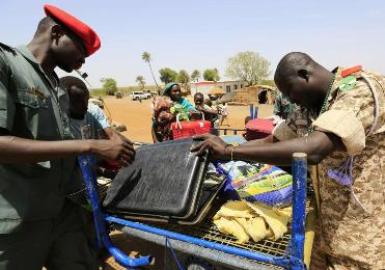Border trade between Sudan and S. Sudan to resume soon: minister
August 18, 2018 (KHARTOUM) – Sudan’s Ministry of Commerce on Saturday said all arrangements have been completed to resume border trade with South Sudan.

He pointed out that a joint committee has been formed to address the outstanding trade issues between the two countries, saying peace and stability in the newborn nation would activate trade between Khartoum and Juba.
Ali further expected the volume of trade exchange between the two countries would increase after the situation in South Sudan returns to normal.
South Sudan seceded from Sudan on July 9th, 2011 following a referendum on whether the semi-autonomous region should remain a part of the country or become independent. 99% of the southern voters chose independence.
Following South Sudan independence, President al-Bashir ordered the border closure accusing Juba of backing Sudanese rebels in South Kordofan and Blue Nile states.
However, the decision didn’t stop totally the trade between the two sides as the border areas from both sides historically had strong trade relations.
Last month, Sudan transport minister and South Sudan presidential adviser on security affairs agreed to open four border crossing points between the two countries within the next few days.
The agreement was announced by the two officials following a meeting held in Khartoum to discuss the implementation of directives of President Omer al-Bashir to open border with South Sudan after the signing of Khartoum Declaration of Agreement on 27 June.
The decision is a part of measures he announced recently to encourage the South Sudanese parties to implement a peace agreement they signed in August 2015. He said it would facilitate the movement of citizens and the flow of trade between the two countries.
In September 2012, both Sudan and South Sudan signed a series of cooperation agreements, which covered oil, citizenship rights, security issues, banking, border trade among others.
In March 2013, the two countries signed an implementation matrix for these cooperation agreements. However, the execution of the agreements didn’t go according to the plan.
(ST)
